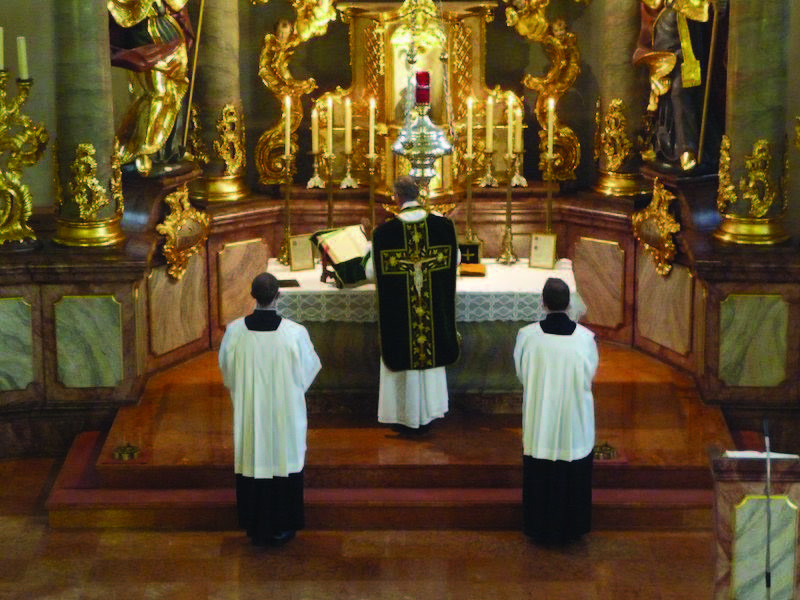
The accommodations made by the Vatican for celebrating the Tridentine (Latin) rite may be taking a more turbulent turn in the post-Vatican II Catholic Church judging by recent events in France. La Croix International (June 29) reports that the Archdiocese of Dijon has asked the traditionalist Priestly Fraternity of St. Peter (FSSP) to leave due to the refusal of its local clergy to celebrate Mass according to the post-Vatican II rite, while the pope is intending to soon publish a note on the correct application of his predecessor’s document Summorum Pontificum regarding the use of the Tridentine rite (which Benedict XVI defined as the “extraordinary form of the Mass” in comparison with the post-Vatican II “ordinary form”). The Fraternity is a traditionalist group that is fully part of the Roman Catholic Church while dedicated to the use of the traditional rite.
The FSSP arrived in Dijon in 1998, five years before Archbishop Roland Minnerath was appointed head of the Archdiocese. On May 17, he announced that he would no longer allow the two FSSP priests to continue to reside and offer Mass in the old rite in the church in Dijon made available to them by the diocese. The reason was their refusal to celebrate the Mass in the ordinary form even occasionally, at the risk of creating a “parallel community.” “I have chosen a traditional rite; I intend to be faithful to it. It is a choice of life,” the local superior of the FSSP replied to La Croix when confirming his refusal to celebrate according to the new rite. This position is apparently shared by one out of every two FSSP priests, according to inside sources cited by La Croix. Currently, Catholic traditionalist communities in union with Rome are regulated by the July 2007 motu proprio of Benedict XVI, allowing laypeople who want the Mass celebrated in the old rite to turn to Rome if their local bishop and clergy turn down their request. Pope Francis’s note on the correct application of Summorum Pontificum is expected to strengthen the bishops’ authority on such issues. It might also lead to the suppression of the Ecclesia Dei section of the Congregation for the Doctrine of the Faith, responsible for overseeing relations with traditionalist communities.

Source: Joachim Specht, 2010 (Wikipedia)